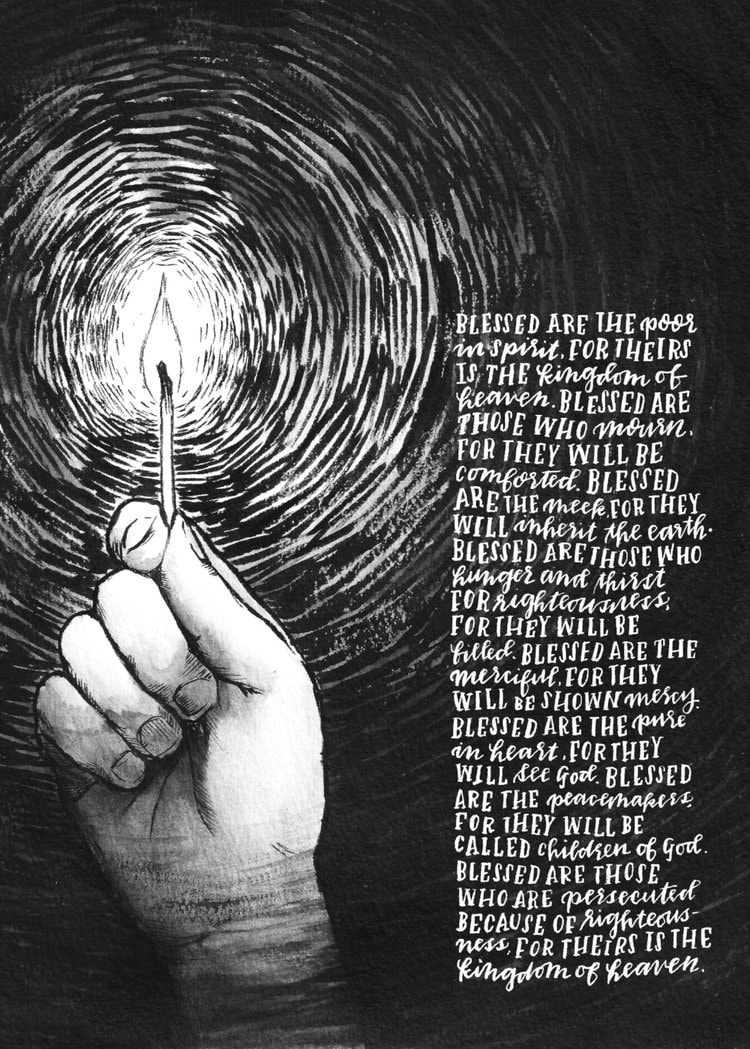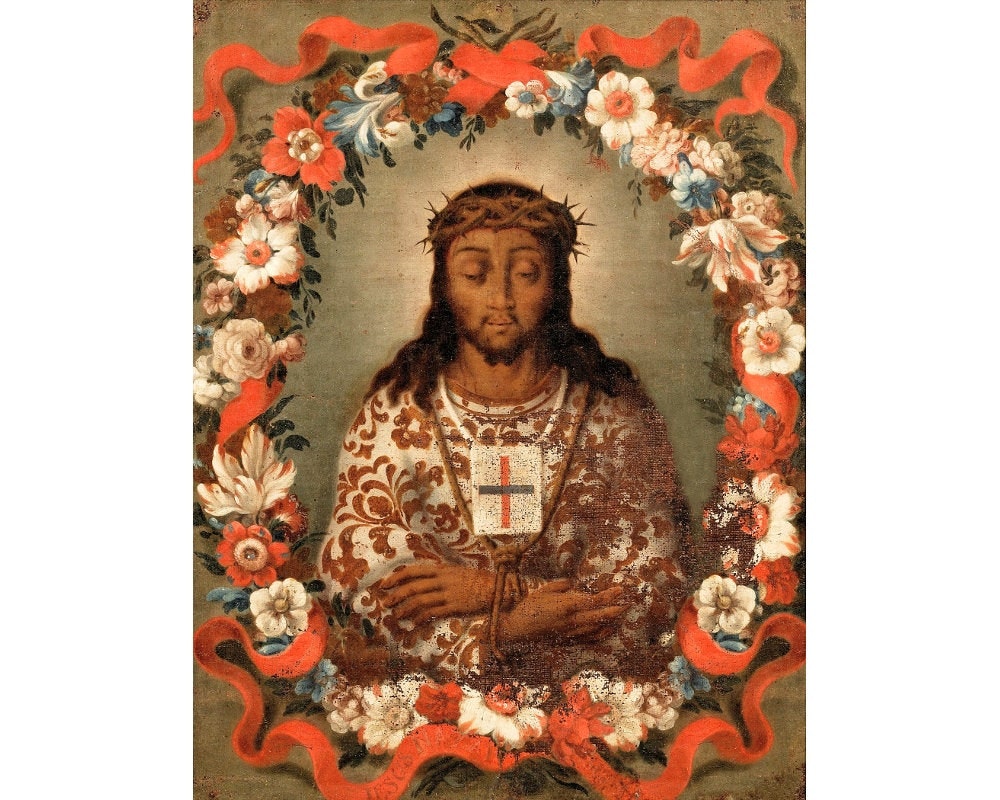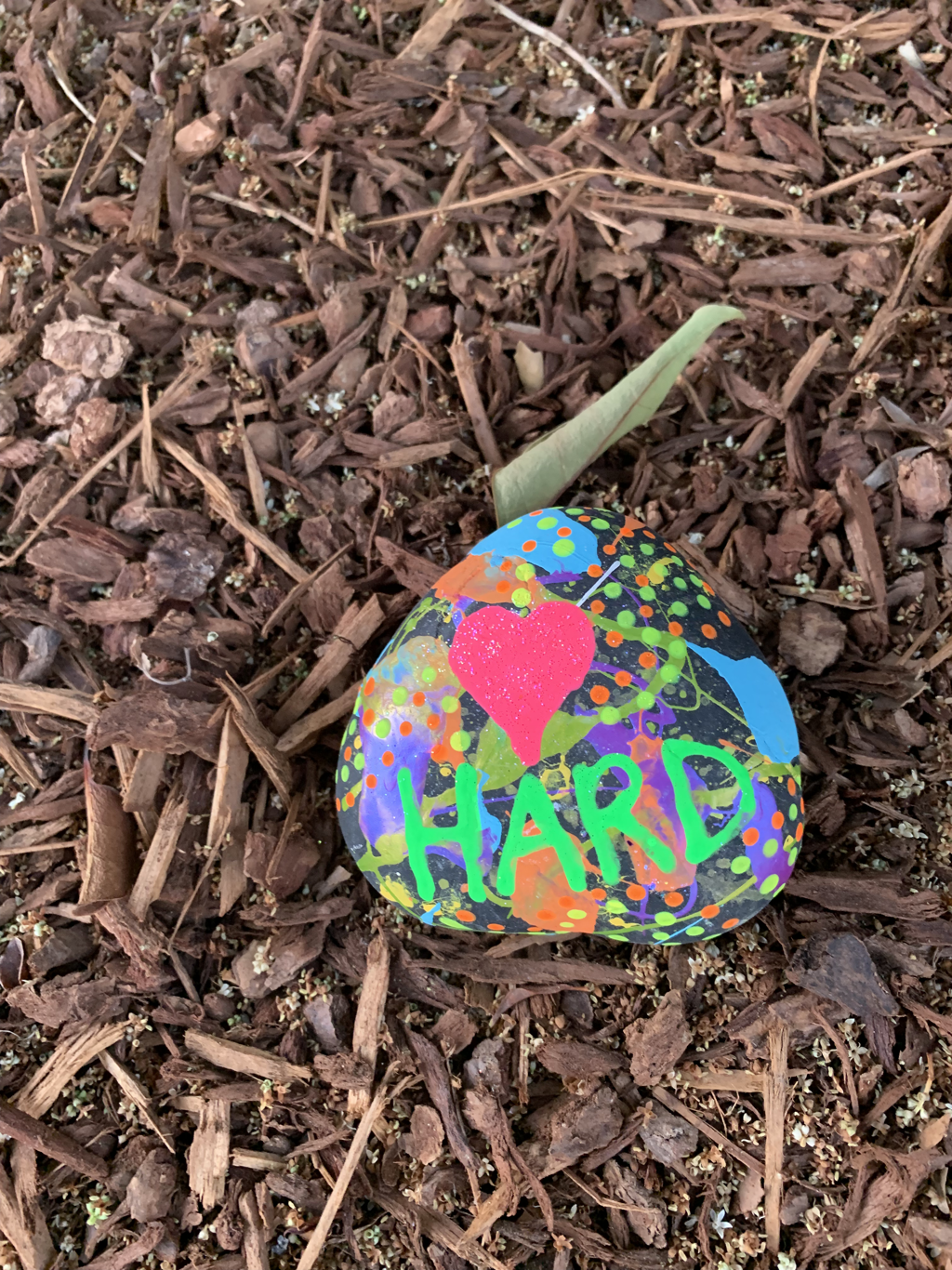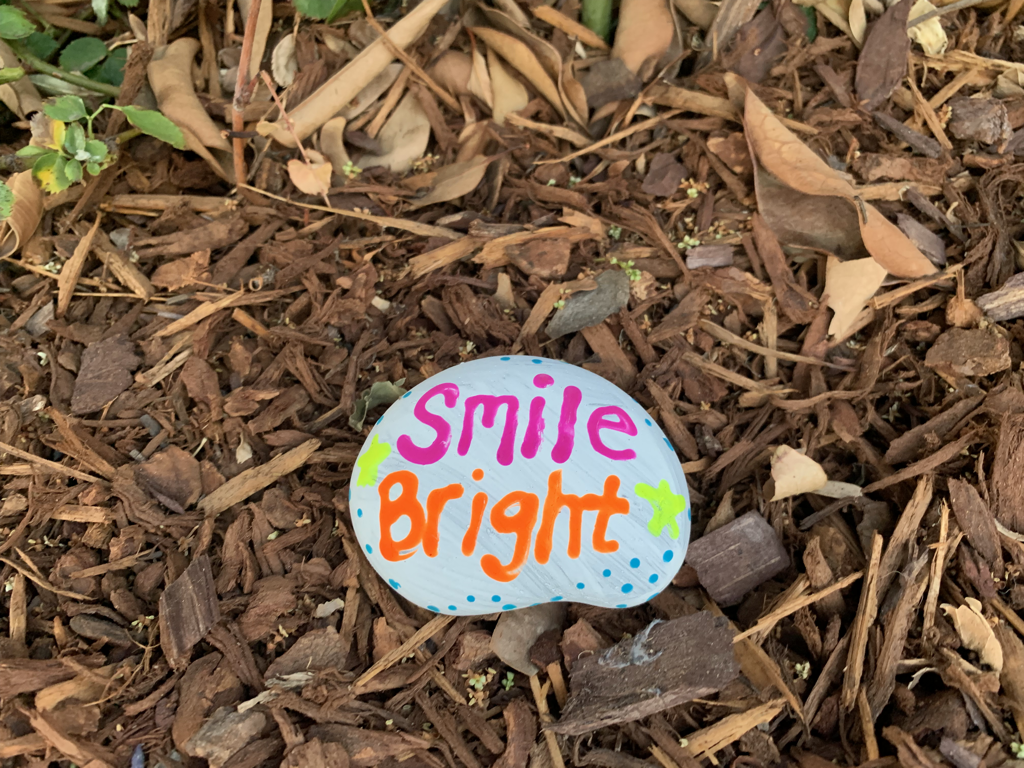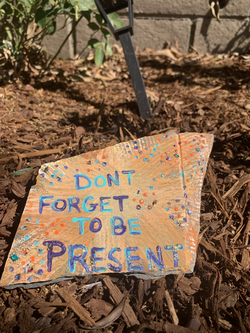When Jesus saw the crowds, he went up the mountain; and after he sat down, his disciples came to him. Then he began to speak, and taught them, saying:
You might remember in Monty Python’s Life Of Brian there’s a scene where they borrow from this famous passage. A man standing in the crowd proclaiming, “Blessed are the Greeks,” and “Blessed are the cheese makers.”
The writers might have been joking when they wrote the lines, little did they know that they’re telling us something about the character of God and the power of God’s Word made flesh. A most unexpected messiah giving blessings to those who never expected one in the first place. Now if you have never heard the Beatitudes, there’s also a good chance you’re saying to yourself, “Wow. These are the most beautiful words I have ever heard.” Or “Gee, these words are beautiful but not very realistic given the world we live in.” For those who have heard them, perhaps you’re thinking, “These beautiful words are just another reminder of all the ways I fail to live up to being a follower of Christ.” Or worse…you might be thinking you’re not worthy of such a blessing. Here’s the thing, Jesus blesses us because it’s in his nature to do so. Jesus isn’t setting us up to fail or wanting us to feel ashamed. He’s giving us a way to live right with God. He’s calling us to participate in the kingdom of heaven knowing exactly what that will entail. Fear, doubt, pressure, mistakes. Jesus knows us, and what we are capable of doing. For better or worse he chooses to bless us with God’s love even if it costs him his life.
watch the message here
In her book “Accidental Saints,” Nadia Bolz-Webber imagines Jesus looking at the crowd on the mountain and “extravagantly throwing around blessing as if grew on trees.”
She writes, “Maybe the Sermon on the Mount is all about Jesus blessing all the accidental saints...especially those the world didn’t seem to have much time for: people in pain, people who work for peace instead of profit, people who exercise mercy instead of vengeance.” Maybe you know these people – the ones the world doesn’t always admire. Again, maybe that’s what you think about yourself. Like you don’t deserve to be blessed – believing you’re not good enough, or poor enough, or meek enough to receive God’s love and grace. But here we have God’s Word saying you are good. You are worthy. You are enough. You might not wake up in the morning hoping to be poor or persecuted, but Jesus wants to give you God’s blessing, nonetheless. I invite you to open your heart and let them in. Of course, this speaks more to who Jesus is rather than who we are. He is the Word of God made flesh. He is God in our midst, turning the ways of the world on its head every time he blesses those who have been ignored, abused, or marginalized. No wonder when God’s Word speaks the world covers its ears, closes its eyes, and turns its back. The world doesn’t want to be blessed with peace when it can make a profit off war. It doesn’t want to mourn, be meek, or give mercy. It wants power. It’s easy to blame all the bad stuff in the world on those who disregard or deny the Word of God. Richard Rohr invites us to take an honest look at ourselves too. He writes, “Let’s be honest, most of Christianity has focused very little on what Jesus himself taught and spent most of his time doing – healing people, doing acts of justice and inclusion, embodying compassionate and nonviolent ways of living.” As a Franciscan, Rohr naturally points us towards St. Francis of Assisi who took the Sermon on the Mount seriously and spent his life trying to imitate Jesus. Francis believed Jesus meant when he said the kingdom of heaven has come near. He went on to live into that truth; creating a community of saints who live into their blessedness by blessing others. I like to imagine what our world today would look like if we proclaimed God’s Word like Francis did. Blessing everyone like Jesus did. It makes me wonder how can we worship God if we don’t trust God’s Word enough to live it out in the world? At the end of the sermon on the mount, Jesus gives us this short but effective image so we will know that we are to act on his words. He said, “Everyone who listens to these words of mine and acts on them will be like a wise person who built a house on rock.” (Read: Matthew 7:24–27) You see, God’s blessings didn’t stop with Jesus. They didn’t die on the cross. They too have been resurrected. And been passed on to us, given to us in our faith, to live through our faithfulness. In Christ, God has blessed you and me so that the world might know God’s Word and receive God’s blessings as their own. It’s up to us to give them away “as if they grew on trees!” The beatitudes are more than just beautiful words to needlepoint. They are an invitation to participate in God’s kingdom. This is our calling. Our mission and ministry. This is our purpose – to be a blessing in and for the kingdom of heaven. Jesus is the Word of God. And his words have purpose - to redeem and restore all of creation back to God. He is calling us now to walk in this kingdom, in his footsteps, blessing everyone we pass along the way. For the blessings we receive from God are the very blessings we are to be for God. Through Christ, God has provided us with everything we need to bless the hungry, the thirsty, the sick, and the dying. In Christ, God has given us a living example of how to honor the poor in a way that empowers them; to show mercy and forgiveness to those who have hurt us, even if we get nothing in return. With Christ, you might discover people will put you down, throw you out or speak lies about you. But instead of getting angry or seeking revenge, Jesus says “Be glad. You’re in good company. God’s prophets and witnesses have always gotten into this kind of trouble” (Mt. 5:12 MSG) If you want to get things right in the world, especially in your own life, perhaps it’s time to let God’s Word direct the way you live by receiving and being a blessing to others. Jesus shows us the way to be in the world without being of it. He is God’s Beatitude made flesh. When we model our lives on his, peace will prevail; all will be comforted and everyone will have their fill; mercy will be shown to us; and the kingdom of God will reign, now and forever. May the Lord bless you and keep you. May his light shine upon you and be gracious to you. May his face smile at you and give you peace. Work Cited Bartlett, David. L. and Barbara Brown Taylor, eds. Feasting on the Word, Year A, Vol. 4 (Louisville: Westminster John Knox, 2011). Bolz-Weber, Nadia. Accidental Saints: Finding God In All The Wrong People. (New York: Convergent, 2015). Pagano, Joseph S. The Beatitudes and Barriers, All Saints Day. Nov. 01, 2017 (accessed on July 23, 2021). Rohr, Richard. Scripture as Liberation, (Center for Action and Contemplation: 2002).
Blessed are they for whom death is not an abstraction.
Blessed are they who have buried their loved ones, for whom tears could fill an ocean. Blessed are they who have loved enough to know what loss feels like. Blessed are the mothers of the miscarried. Blessed are they who don’t have the luxury of taking things for granted anymore. Blessed are they who can’t fall apart because they have to keep it together for everyone else. Blessed are those who “still aren’t over it yet.” Blessed are those who mourn. You are of heaven and Jesus blesses you. Blessed are those who no one else notices. The kids who sit alone at middle-school lunch tables. The laundry guys at the hospital. The sex workers and the night-shift street sweepers. Blessed are the forgotten. Blessed are the closeted. Blessed are the unemployed, the unimpressive, the underrepresented. Blessed are the teens who have to figure out ways to hide the new cuts on their arms. Blessed are the meek. You are of heaven and Jesus blesses you. Blessed are the wrongly accused, the ones who never catch a break, the ones for whom life is hard, for Jesus chose to surround himself with people like them. Blessed are those without documentation. Blessed are the ones without lobbyists. Blessed are foster kids and special-ed kids and every other kid who just wants to feel safe and loved. Blessed are those who make terrible business decisions for the sake of people. Blessed are the burned-out social workers and the overworked teachers and the pro bono case takers. Blessed are the kindhearted football players and the fundraising trophy wives. Blessed are the kids who step between the bullies and the weak. Blessed are they who hear that they are forgiven. Blessed is everyone who has ever forgiven me when I didn’t deserve it. Blessed are the merciful, for they totally get it.
0 Comments
I’ve preached this idea of loving God and loving neighbor a lot. It’s a simple command from Jesus that comes from Jewish history, after their liberation from Egypt. It’s part of the Ten Commandments and reads, “ “Love God, your God, with your whole heart: love him with all that’s in you, love him with all you’ve got!” (Deuteronomy 6:5 MSG). But then I read this from Henri Nouwen, who opened my eyes to see this simple, basic command in a new way. I’d like to share it with you. … we must continually remind ourselves that the first commandment requiring us to love God with all our heart, all our soul, and all our mind is indeed the first. I wonder if we really believe this. It seems that in fact we live as if we should give as much of our heart, soul, and mind as possible to our fellow human beings, while trying hard not to forget God. At least we feel that our attention should be divided evenly between God and our neighbor. But Jesus’ claim is much more radical. He asks for a single-minded commitment to God and God alone. God wants all of our heart, all of our mind, and all of our soul. It is this unconditional and unreserved love for God that leads to the care for our neighbor, not as an activity that distracts us from God or competes with our attention to God, but as an expression of our love for God who reveals himself to us as the God of all people. It is in God that we find our neighbors and discover our responsibility to them. We might even say that only in God does our neighbor become a neighbor rather than an infringement upon our autonomy, and that only in and through God does service become possible.“ Love begins with God. Love is God. All things begin with all of God’s love being poured into it. God gives us the fullness of love until we are filled with love. And that love is given for a purpose. So we will not steal, cheat, lie, covent or kill one another. Built so we will love one another. And act accordingly as if we are loving God in the flesh.
Text excerpts taken from "You are the Beloved" by Henri J.M. Nouwen Legacy Trust. (New York: Convergent Books, 2017).
And the Word became flesh and lived among us, and we have seen his glory, the glory as of a father’s only son, full of grace and truth. ~ John 1:14
While you probably didn’t notice any mention of tacos in the text, you might have noticed John’s gospel doesn’t begin with a typical birth story. There’s no baby in a manger, no shepherds or wisemen. Or angelic proclamations. Just this strange, poetic passage about the Incarnation - where the perfect embodiment of God takes on human flesh and walks among us.
What’s this got to do with tacos? Good question. Well, the root word for incarnation is carne, which in Spanish means “meat” or “flesh.” Any taqueria worth its salt will have carne asada, or steak tacos, on its menu. I’ll make another confession. If I could have tacos with anyone, and no offense to you all, I’d pick Jesus, the incarnate Christ - God with meat. According to John, Jesus is the Word of God made flesh, sent to live among us so we could see the glory of God’s grace and truth. He describes Jesus as the light that reveals God’s self to humanity. And the life that gives us new life by reconciling us back to our Creator. So it’s kinda safe to say Jesus is like a delicious life-giving taco that nourishes us with all the goodness of God. If we are to understand who we are as followers of Christ, we must first understand who he is as the Word of God. Growing up in the church I thought the Bible was the word of God. In many ways it is. It’s filled with things God said, and it’s meaty in all the ways it shapes and guides our way of living. But the more I studied John, the more I realized he’s talking about something bigger than some holy words in holy book.
watch the message here
In the original Greek New Testament, John uses the word logos to introduce Jesus. It says “In the beginning was the logos, and the logos was with God, and the logos is God.”
Logos is a rich and nuanced word that can define one’s mind and rationality, as well as one’s speech or communication. In this case, the logos or Word of God is the content of God’s thinking and conveys God’s actions. Think about the creation story in Genesis. God has an idea and speaks it into being. With a Big Bang, God’s Word creates the infinite universe and all that it contains. If Jesus is the logos, the very Word of God that John proclaims, then Jesus is the one who conveys God’s intentions, which are made visible, or manifest, by his actions. Now, think about tacos again. Imagine God standing in the kitchen looking at a plain tortilla sitting all by itself on the counter and thought, “I bet that tortilla would taste better if it were stuffed with some meaty goodness.” Well, that goodness is Jesus. As John tells it, the intangible light, glory, grace, and truth of God comes into being, takes on flesh and walks among us in the personhood of Jesus of Nazareth. Anyone who want to see God or taste God’s goodness needs to look no further than him – God with meat. In Christ, God’s divine attributes are made know to us in order to show us who we truly are and what it means to be called: “children of God.” As someone once said, “Jesus is not alone in this word-made-flesh business. He has brothers and sisters.” And that’s where we come in. Jesus needs you and me – in all our fleshiness – to continue his mission, revealing God’s glory and reconciling humanity back to God’s open heart. You could say we are a part of God’s taco. Jesus is the meat, but we’re the seasoning, the onions, cilantro, guacamole, and salsa. We build upon what God has created by living into what God has given to us. Life. With Christ leading the way, God empowers us to nourish the world with delicious and divine goodness so we can live life the way God intended since the beginning. With abundance. Most of us don’t think of ourselves as a taco. But then again, most of us don’t think we’re good enough to possess the flesh of God. But John says anyone who sees Jesus and believes what he has to say is given the power to be a child of God. We each have a bit of God’s logos in us. We each have a word that defines our faith and helps others to see God in their midst. For some that word is “justice” or “compassion” or “generosity” or “patience.” Yours might be “love” or “kindness” or “tender-heartedness.” These are all great words that embody God’s thoughts and actions in you. But here’s the thing: You have to put flesh on your word in order for it to mean anything. Which is exactly what Jesus did. To be his follower we too must put on the flesh, the weighty substance of faith, and do what he did: healing and feeding and tending to the needs of others; forgiving debts and transgressions, welcoming strangers, showing hospitality, offering a helping hand to your enemies. Being God’s abundant love with our flesh and blood. What is true for us, is true for institutions as well. As the body of Christ we are called to live as he does. We can’t do everything ourselves, but we can do somethings well. Paul reminds us that there are different parts yet one body. Each of us have unique gifts that add to the fleshiness of that body. We can say our church vision is to love God, love others, and serve both, but until we go out and actually love and serve, those words are just meatless bones. To quote Corey Booker, “Don't speak to me about your religion; first show it to me in how you treat other people. Don't tell me how much you love your God; show me in how much you love all God's children. Don't preach to me your passion for your faith; teach me through your compassion for your neighbors. In the end, I'm not as interested in what you have to tell or sell as I am in how you choose to live and give.” Booker’s words echo the entire teachings of Jesus who boiled down the gospel with a single word. That word is love. The moment we show love is the very moment God’s Word becomes flesh and lives among us, in us and through us. You see, the incarnation is not a one-time event. It’s an on-going invitation to participate in God’s kingdom; to feed and nourish the world with God’s love. It’s a call to truly embrace and embody Christ’s flesh, not just his name. Let's be honest, God did not send the Son to create another religion. No, God became flesh and blood so we would know God’s thinking and see God’s intensions. The Bible is filled with stories of Jesus living like this. As a result, he couldn’t help but radiate God’s glory with truth and light. He shone so brightly that the darkness of the world didn’t stand a chance. As you leave here today, I hope that you will remember this: Jesus is the word given to us. His flesh is ours flesh. His light is our light. His life is ours too. This is important because there’s still way too much darkness in the world. Nationalism, individualism, racism, division, addiction, violence, poverty, starvation and injustice just to name a few. What seems like an endless list continues to cast a dark shadow over all the good out there. And there’s a lot of good out there. There always has been. For in the beginning was the Word. God’s Word. And it’s a good word. Love. In Christ, God’s perfect love became flesh so that you and I could live into our best self. We are made in Imago Dei. We are the image of God. Filled with God’s love and light. We are made fleshy and good. So, the more flesh we add, the bigger and better Christ’s body becomes. But who will take on the weight of his flesh so the world can know and savor God’s everlasting goodness? Who will set aside their political ideologies and divisive doctrines to accept and welcome all people as if you are welcoming and accepting Jesus himself? Who will stand up against injustice? Or advocate for peace? Who will march for the dignity of life? Or stop and help a stranger in need? Who will set aside your own power and privilege to be a servant for the voiceless and powerless? Will it be you? Will you pick up your cross and really follow Jesus – breathing life where there is death; light where there is darkness; hope where all hope seems lost? Again, each of us brings our own unique flavor of God’s love to life. We are a part of God’s delicious taco, given abundant life and love so that the world can know, and savor, the everlasting Word made flesh, full of grace and truth. Work Cited Bartlett, David L. and Barbara Brown Taylor. Feasting on the Word, Year C, Vol. 1 (Louisville: Westminster John Knox, 2009).
Imagine seeing and understanding God simply by looking at the world between your eyes and the horizon line. In that space between are countless opportunities to learn and grow deeper in our understanding of God’s greatest mysteries. I think Paul wanted us to realize that we are a part of God’s creation and we ought to use our lives to reveal God’s truth in us and through us. We are to fill this space with God’s eternal light and love because we are a part of it! We can love God because God loves us, and we are a part of that love. We can love one another because we are all interconnected by God’s love. We are all one with God, nature, and the power that moves between. Paul invites us to see God in all things. And the more I realize I am simply a part of everything ever created, the harder it is for me not to see God in all things - like me, you, and everything in between. God becomes incarnate in the laughter of two children digging a hole and throwing sand at each other. In the birds that swoop overhead and old man asleep on a beach towel. In the tiny waves that barely lap the beach to the even smaller bug that hops around the even smaller grains of sand, God is made known to us. We are without excuse to see and acknowledge God’s mysteries. Richard Rohr makes the argument that this is how Christ is being revealed in the world. “Christ is another name for all things.” Christ is the universal connection that ties us all together. If Rohr is correct, then we ought to be able to see Christ inside us as well as right in front of us, right here and right now in whatever space you find yourself in. Why is this important? Does God need our recognition to survive? Or do we need to recognize God to survive? Maybe it’s not so dramatic as that. Perhaps it’s simply a way to see God so that we come to understand our place in the divine cosmic relationship with God and the entire cosmos. Or maybe it’s more simple. Maybe it’s in our understanding of this that we understand how to be who we were made to be. Henri Nouwen makes this case:
We learn about the nature of God by looking at the natural world God made. But the natural world also teaches us about who we are in relationship with God, and the steadfast love of God that moves through and all around us in Christ. All nature conceals its great secrets and cannot reveal its hidden wisdom and profound beauty if we do not listen carefully and patiently. John Henry Newman sees nature as a veil through which an invisible world is intimated. He writes: “The visible world is… the veil of the world invisible…so that all that exists or happens visibly, conceals and yet suggests, and above all subserves, a system of persons, facts, and events beyond itself.” How differently we would live if we were constantly aware of this veil, how nature is ever ready for us to hear and see the great story of the Creator’s love, to which it points? Again, Nouwen posits, “The plants and animals with whom we live teach us about birth, growth, maturation, and death, about the need for gentle care, and especially about the importance of patience and hope. . .” It might be wise for us to allow “nature to minister to us.” St. Francis of Assisi often preached to tress and animals, but he also sat in nature to hear a sermon from the birds in the air and the bugs on the ground. “We could do an immense service to our world if we would let nature heal, counsel, and teach again,” states Nouwen.
Work Cited:
Nouwen, Henri J.M. (2017) "You are the Beloved." The Henri Nouwen Legacy Trust: Convergent Books. Mclaren, B. D., Rohr, R. (2019). The Universal Christ: How a Forgotten Reality Can Change Everything We See, Hope For, and Believe. United States: Crown Publishing Group. |
Ian MacdonaldAn ex-copywriter turned punk rock pastor and peacemaker who dedicates his life to making the world a better place for all humanity. "that they all might be one" ~John 17:21“Prius vita quam doctrina.”
~ St. Thomas Aquinas (1225–1274) * “Life is more important than doctrine.”
Archives
June 2024
|
